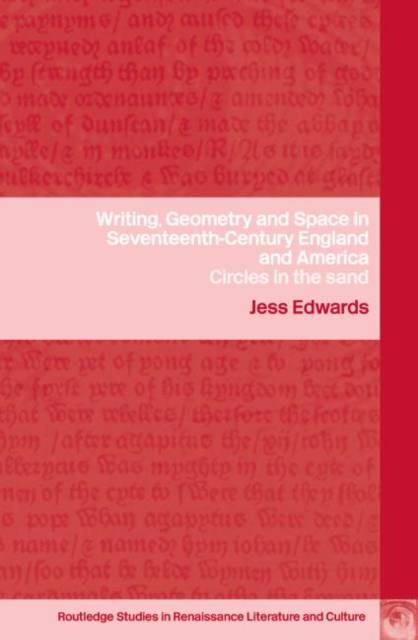
- Retrait gratuit dans votre magasin Club
- 7.000.000 titres dans notre catalogue
- Payer en toute sécurité
- Toujours un magasin près de chez vous
- Retrait gratuit dans votre magasin Club
- 7.000.000 titres dans notre catalogue
- Payer en toute sécurité
- Toujours un magasin près de chez vous
Writing, Geometry and Space in Seventeenth-Century England and America
Circles in the Sand
Jess EdwardsDescription
The early modern map has come to mark the threshold of modernity, cutting through the layered customs of Medieval parochialism with its clean, expansive geometries. Re-thinking the role played by mathematics and cartography in the English seventeenth century, this book argues that the cultural currency of mathematics was as unstable in the period as that of England's controversial enclosures and plantations. Reviewing evidence from a wide range of literary and scientific; courtly and pragmatic texts, Edwards suggests that its unstable currency rendered mathematics necessarily rhetorical: subject to constant re-negotiation. Yet he also finds a powerful flexibility in this weakness. Mathematized texts from masques to maps negotiated a contemporary ambivalence between Calvinist asceticism and humanist engagement. Their authors promoted themselves as artful guides between virtue and profit; the study and the marketplace.
This multi-disciplinary work will be of interest to all disciplines affected by the recent 'spatial turn' in early modern cultural studies, and particularly to students and researchers in literature, history and geography.
Spécifications
Parties prenantes
- Auteur(s) :
- Editeur:
Contenu
- Nombre de pages :
- 176
- Langue:
- Anglais
- Collection :
- Tome:
- n° 5
Caractéristiques
- EAN:
- 9780415323413
- Date de parution :
- 24-11-05
- Format:
- Livre relié
- Format numérique:
- Ongenaaid / garenloos gebonden
- Dimensions :
- 162 mm x 240 mm
- Poids :
- 390 g







